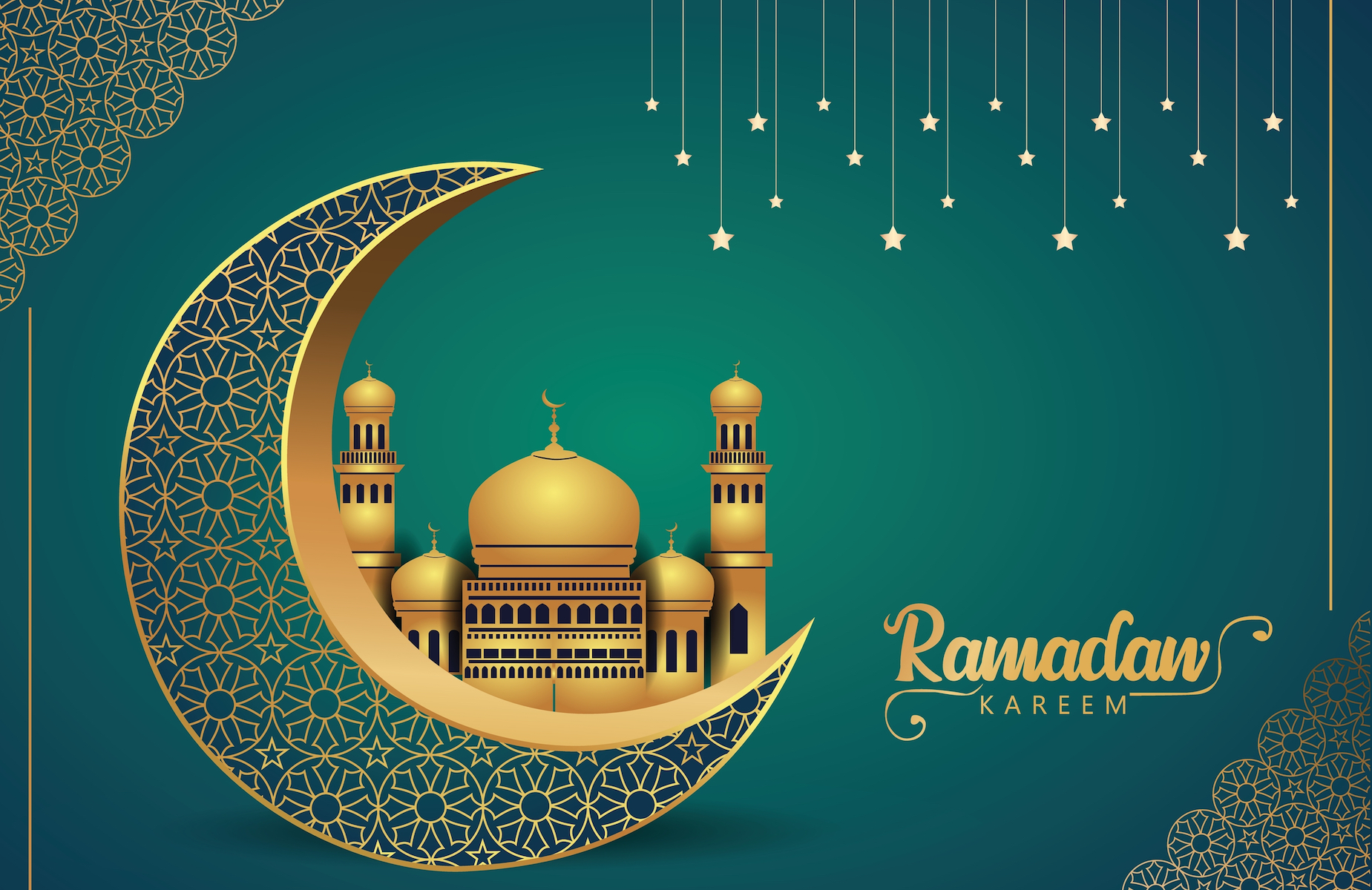
The Holy Month of Ramadhan
The holy month of Ramadhan is the ninth month of the Islamic Lunar calendar and the holiest of the four holy months. It begins with the sighting of the new crescent moon after which all physically mature and healthy Muslims are obliged to abstain from all food, drink, gum chewing, any kind of tobacco use, and any kind of sexual contact between dawn and sunset. However, that is merely the physical component of the fast; the spiritual aspects of the fast include refraining from gossiping, lying, slandering and all traits of bad character. All obscene and irreligious sights and sounds are to be avoided. The purity of thought and action is paramount. Ordained in the Qur’an, the fast is an exacting act of deeply personal worship in which Muslims seek a raised level of God-consciousness.
The act of fasting redirects the hearts away from worldly activities towards The Divine. The month of Ramadhan is a time for spiritual reflection, prayer, doing good deeds and spending time with family and friends. The fasting is intended to help teach Muslims self-discipline, self-restraint and generosity. It also reminds them of the suffering of the poor, who may rarely get to eat well. It is common to have one meal (known as the Sahari) just before sunrise and another (known as the Iftar) directly after sunset. This meal will commonly consist of dates; following the example of the Prophet Muhammad, peace be upon Him. Because Ramadhan is a time to spend with friends and family, the fast will often be broken by different Muslim families coming together to share an evening meal.
Additionally, Muslims are urged to read the entire Qur’an during the month of Ramadhan, and its 114 chapters have been divided into 30 equal parts for this purpose.
When a reliable source has officially sighted the first crescent of the new moon, the month of Ramadhan is declared over, and the month of Shawwal begins. The end of Ramadhan is marked by a three-day period known as Eid al-Fitr, the “Festival of Fast-breaking.” It is a joyous time beginning with a special prayer, accompanied by celebration, socializing, festive meals, and sometimes very modest gift-giving, especially to children.
When Ramadhan ends, Muslims give charity in a locally prescribed amount, calculated to feed one poor person in that region for one day. This is known as fitra and is meant as another reminder of the suffering endured by many. Many Muslims also take this occasion to pay the annual alms, which are due to the poor and needy, known as Zakat.
At the beginning of Ramadhan, it is appropriate to wish Muslims “Ramadhan Mubarak“, which means “Blessed Ramadhan.” At its conclusion, you may say “Eid Mubarak”.
Special Revival Nights:
Muslims believe that God began revealing the Qur’an to the Prophet Muhammad during Ramadhan (in the year 610 C.E.). The Qur’an commands: “O ye who believe! Fasting is prescribed to you as it was prescribed to those before you, that ye may (learn) self-restraint…Ramadhan is the (month) in which the Qur’an was sent down as a guide to mankind and also clear (Signs) for guidance and judgment (between right and wrong). So every one of you who is present (at his home) during that month should spend it in fasting…” (Chapter 2, verses 183 and 185).
Another aspect of Ramadhan is that it is believed that one of the last few odd-numbered nights of the month is the Laylat ul-Qadr, the “Night of Power” or “Night of Destiny.” It is the holiest night of the holiest month; it is believed to be the night on which God first began revealing the Qur’an to the Prophet Muhammad through the angel Gabriel. This is a time for especially fervent and devoted prayer, and the rewards and blessings associated with such are manifold. Muslims are told in the Qur’an that praying throughout this one night is better than a thousand months of prayer. Additionally, Muslims are urged to read the entire Qur’an during the month of Ramadhan, and its 114 chapters have been divided into 30 equal parts for this purpose.
